In a season that saw the No. 1 ranking in the polls shuffle seemingly every week and highly ranked teams get upset every weekend, there’s been a noteworthy shift entering the NCAA tournament. Many people are coalescing around either Alabama or Houston to win the national championship.
While Houston, which would play the Final Four in its home city, is the betting favorite, it was Alabama that emerged as the overwhelming favorite among college coaches and NBA scouts.
When we performed this exercise last year, there were 11 different teams selected by the 25 coaches and scouts polled. The year before, there were only three, and in 2019, six. All three years, the eventual title winner received multiple votes, which bodes well for Alabama, Houston, Arizona, Kansas and Purdue.
This season’s results land somewhere in between those three polls, with the Crimson Tide as the heavy favorite.
Here are the results of the 25 industry people polled:
“They have the best player in the country [Brandon Miller] and the guy nobody is talking about nearly enough, the reemergence of Jahvon Quinerly,” one coach said about the Crimson Tide. “They switched from [Jaden] Bradley to Quinerly at halftime of the Arkansas game and he’s taken off ever since. Noah Clowney is going to be a first-rounder, [Charles] Bediako is a good rim protector, Mark Sears is an experienced complement to Quinerly and Miller.”
As another coach added about Alabama, “They are really long and athletic, and they play such a unique style of offense that it’s hard for teams to prepare. They shoot so many transition 3s. By the time you get back and fan out, the shot is already up. And Brandon Miller is pound for pound the best player in college basketball, not even close.”
One NBA scout said, “How can you not pick Alabama at this stage? I guess you can say they could lose when they’re not hitting their 3-pointers, but that’s the beauty of the system and personnel. They don’t need to primarily rely on the 3 to win. Plus, they have likely the only unstoppable player in college basketball in Miller. Even when he’s not making shots early — like on Sunday [in the SEC tournament final] — he can still do things at such a high rate beyond scoring, like defensive rebounding and live ball playmaking. Alabama has shooters, playmakers, drivers, post options, defenders and multiple lineups to throw at any type of matchup.”
One coach who picked Alabama does have a major concern, however.
“Their reliance on 3-point shooting [worries me],” he said. “I think they’ve done a great job finding other ways to score, such as lob threats over the top of penetration. But the reliance on the 3 ball in six best of ones [single-elimination games] would be my cause for concern. In a best of seven or something of that ilk, that risk is mitigated. In a best of one, they’re an 0 for 12 stretch away from potentially being eliminated.”
Injuries played a big role in the voting results, with a couple of coaches admitting the availability of Houston’s Marcus Sasser and the season-ending injury to UCLA’s Jaylen Clark swayed their opinion.
“I think it’s Houston. Knock on wood, with Sasser’s injury, but they’re good on both sides, and they have such a culture of toughness,” one coach said. “I wish Clark wasn’t hurt, though, because I really think Mick [Cronin]’s team could have won six.”
Arizona’s run through the Pac-12 tournament was convincing to multiple coaches, especially the way the Wildcats came back to beat UCLA in the title game.
“I watched them beat UCLA the other night, and I think they have the size and pieces to win it,” one coach said. “Maybe it’s a little outside the box, but they have a coach who has made deep NCAA runs, and they have five guys that score in double figures.”
UConn also garnered a vote, with one coach pointing to the Huskies’ early-season run as the highest ceiling anyone has shown so far this campaign.
“I think the best team in college basketball this season was UConn for the six-week stretch to start the season,” he said.
One college coach who picked Alabama was still surprised with the way the Crimson Tide dominated the voting.
“Man, I feel like there’s probably a legit 10 to 14 teams who could win it,” he said.
Fatal flaws for 1-seeds
Alabama, Houston, Kansas and Purdue were the clear 1-seeds on Selection Sunday, the four best teams in the country entering the NCAA tournament.
None of them is perfect, however, so we reached out to opposing coaches to find out the potential weaknesses that could cost them the chance to cut down the nets in the next couple of weeks.
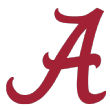 Alabama Crimson Tide
Alabama Crimson Tide
Coaches pointed to off nights from Brandon Miller and 3-point struggles as two areas that could spell the end of Alabama’s run in March.
Miller was the best freshman in the country, and he likely will be the top college player chosen in June’s NBA draft. He doesn’t have many poor outings, scoring in double figures in all but one game this season — and that happened back in December against Houston. But hey, opponents can hope.
“If you can take Brandon Miller out of the game or make him be as ineffective as possible, that would be Alabama’s kryptonite,” one coach said. “Teams have tried by denying him. He didn’t attempt a shot in the first half at Arkansas. UConn made him put the ball on the floor. Early in the season, he wasn’t posting up. He was a good finisher going right, bad finisher going left. But he got a lot better as the year went on, became a really good finisher. But no question, make him floor it.”
Alabama’s perimeter shooting tailed off toward the end of the regular season, with the team shooting 25-for-116 (21.6%) in its final four regular-season games. The Crimson Tide made more shots in the SEC tournament, hitting 11.0 3s per game, but they still only made 33% of those shots.
“It was more on Alabama than the defenses,” an SEC coach said. “They had open shots against South Carolina, Arkansas ran them off the line, Auburn and Texas A&M changed defenses on them and A&M slowed the pace down with their three-quarter-court 1-2-2 press. Alabama didn’t know what to run; they ended up in a lot of late-clock situations. A&M was dictating what shots they took.”
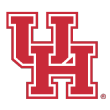 Houston Cougars
Houston Cougars
Marcus Sasser’s availability is the storyline surrounding the Cougars right now. The All-American guard went down with a groin injury in the American Athletic Conference tournament and didn’t play in the title game loss to Memphis. He is reportedly going to be available for the NCAA tournament, but will he be at 100 percent?
Without him, Houston would have to lean on freshmen Terrance Arceneaux and Emanuel Sharp.
“They rely on freshmen for their main depth, and I’m not sure they are ready for that stage,” one coach said. “Sasser went down in the conference tourney, and they probably don’t lose to Memphis with him — but without him, they rely on three freshmen too much. They might make the Sweet 16, but they could also easily get upset in Round 2 without Sasser. There’s just a huge drop between Sasser and Arceneaux and Sharp.”
If Sasser does suit up, where Houston might be vulnerable is running into a team that can take care of the ball and match the Cougars’ physicality. There aren’t many of those teams in the country, but we’re talking about the rarefied air of the 1-seeds here.
“It’s no secret that you have to have the ability to throw a punch and take a punch against Houston,” another coach said. “To even get to the basketball part, you have to be able to first engage in the fight. Having guards that can breathe against them, guards that possess the ability to handle the ball and make plays against their pressure and physicality, is a must. It’s that combination of toughness and high-level guard play that can potentially present them a problem.”
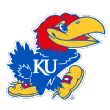 Kansas Jayhawks
Kansas Jayhawks
Kansas had the best collection of wins in the country, by some distance, but it’s also a team that lost seven games on the season — including a three-game skid in January and a pair of blowout losses at the hands of Texas within eight days of each other this month. The Jayhawks are far from infallible.
Where they ran into issues, especially offensively, was when the offense revolved too much around Jalen Wilson. Gradey Dick had some stretches when he wasn’t making shots; same with Dajuan Harris Jr.; same with Kevin McCullar Jr. Dick and Wilson are the only volume 3-point shooters on the team too.
“Kansas doesn’t have a ton of shooting if you take away Gradey Dick,” one coach said. “Teams can collapse the paint and it becomes a make-or-miss game, especially if you get back in transition.”
As another coach added, “Gradey and Jalen have to make shots. One of them making them isn’t enough.”
The other potential problem has been a focal point all season: Kansas’ lack of size. The 6-foot-7 K.J. Adams Jr. starts at the center position, and while 6-foot-11 center Ernest Udeh saw more minutes as the season progressed, the Jayhawks still prefer a smaller lineup.
“Defensively, they can’t protect the rim,” one Big 12 coach said. “They have to double the post, which makes them susceptible to open 3s. [Potentially playing] Arkansas doesn’t worry me because they don’t have a great post player and they don’t shoot the 3 well, but Illinois could be a problem.”
 Purdue Boilermakers
Purdue Boilermakers
On paper, Purdue seems like the most vulnerable of the 1-seeds. The Boilermakers fell apart in the month of February, losing four of six games after starting the season with 22 wins in their first 23 games. They rebounded to win five straight entering the NCAA tournament, but four of those came by five points or fewer.
Most opposing coaches focused on the recent performance of Purdue’s guards. Freshmen Braden Smith and Fletcher Loyer started all 34 games together in the backcourt, but they began to hit something of a wall down the stretch, and teams began to be more aggressive with them at both ends of the floor. With all the focus on Zach Edey inside, teams also are forcing his supporting cast to hold their own.
“Fletcher Loyer isn’t the same as he was early in the year. [David] Jenkins Jr. is playing better, which helps,” one coach said. “But they don’t have a lot of ballhandling and could struggle against pressure. Teams will put them in a position where [Ethan] Morton, [Mason] Gillis and [Caleb] Furst are going to have to make plays and make shots.”
Purdue going down in the second round to AAC tournament champion Memphis is a popular upset pick making the rounds, but one Big Ten coach isn’t quite on board.
“Brandon Newman has been a lot better. He has been doing a good job guarding. Kendric Davis is awesome, but I think Newman can do well against him,” he said. “Memphis is a bad defensive rebounding team, which isn’t ideal against Purdue. Can Memphis keep Edey from getting 30 and 15?”
How far can UCLA go without Jaylen Clark?
UCLA looked like a legitimate national championship threat heading down the stretch of the season. The Bruins hadn’t lost since Jan. 26 and were rolling to a Pac-12 regular-season title. But Jaylen Clark, one of the elite defenders in college basketball, was then lost for the season with an Achilles injury. Starting center Adem Bona also suffered an injury, in the Pac-12 title game, but UCLA is indicating he’ll look to suit up in the NCAA tournament.
The Bruins have everything else: veteran point guard play in Tyger Campbell, an All-American in Jaime Jaquez Jr., a dynamic freshman in Amari Bailey and the best defense in college basketball. But does that defense take a hit without Clark — and if so, can they still cut down the nets?
“He’s very important for them on the defensive end,” one Pac-12 coach said of Clark. “He is a true shutdown defender, and more importantly, he can shut down positions 1 to 4. He’s tough enough to fight in the post if he gets switched on a posting 4 or a 5, and he rebounds. The key is that it allowed them to rest Jaquez and keep him from being the primary defender on the opponent’s best wing or 4. Jaquez is more than capable of defending, but now he may have to do it for most of the game, which will take away from his offense on the other end.”
Not only was Clark one of the best defenders in the country, he had taken a big step forward on the offensive end this season. He went from 6.7 points and 25.9% from 3-point range to 13.0 points and 32.9% from behind the arc. He gave the Bruins a consistent third option behind Jaquez and Campbell. Without Clark at that end of the floor, Bailey and David Singleton will have to shoulder more responsibility.
UCLA is in the toughest region in the bracket, with Kansas, Gonzaga and UConn the other top-four seeds. The Bruins should still be able to get past UNC Asheville and the winner of Northwestern-Boise State, but either Gonzaga or TCU in the Sweet 16 and either Kansas or UConn in the Elite Eight would be a stiffer test.
“Clark is their utility guy. Along with Jaime, he’s the heart and soul to their team, especially on the defensive end,” another Pac-12 coach said. “His ability to defend the best player on the floor regardless of position allowed some of the other guys to focus on the offensive end.
“Because Cronin has built a tough identity, I don’t know if his absence will affect them as much early. But as games continue, I’d expect some of their better players to wear down more because guys that have been able to focus more on the offensive end will now be relied upon much more heavily defensively. They play at a slower pace, which will help, but I do think the wear and tear it puts on Jamie, Tyger and Amari will be something to watch.”
Cinderella potential
We’ve gone through the title picks. We’ve gone through the favorites. Now it’s time for the early-round upsets, the teams that get the blood pumping on Thursday afternoon and capture the attention of the country. We’ve taken four teams that ESPN’s Giant Killers formula pegged among the likeliest teams to pull off an upset and talked to coaches about why they will — or won’t — win games this week.
Note: We did a deep dive on Charleston earlier this season, and we have repurposed some of those quotes.
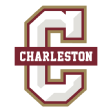 Charleston Cougars
Charleston Cougars
Why they can be a Cinderella:
“They want to outscore you; they play at such a fast pace. They come with waves of dudes that know their role, and they’re in there for a certain amount of time, so they’re very aggressive offensive players. They’re men. They’ve got old dudes. And it’s such a frenetic offensive pace. You can’t get them into a pickup game.” — Colonial Athletic Association head coach
“It’s overwhelming at times. You have to be well-conditioned; you have to have depth [because] they want to change ends quickly, make or miss. You try to grind them deep into a shot clock, but they bring in another wave, those guys pick up, those guys get their shots up. It’s definitely not the norm; you just don’t find teams comfortable playing that many guys. Pat [Kelsey]’s done a great job with that. Getting guys to buy into their culture and doing what they need to win.” — CAA head coach
Why they won’t be a Cinderella:
“From a talent perspective, they can be overwhelmed … They have four guys in the paint going to offensive rebound. Will they be able to do that effectively enough against high-major teams? They couldn’t do it to [North] Carolina. You play against an SEC team, an ACC team that has some dudes, they can’t do that. Teams that can match their toughness and physicality.” — CAA head coach
“Can they guard at an elite level? Can they stop people? They’re not great defensively; they’re just good. They outscore you. They can give up 70 to 75 points and score 80 to 85. In the tournament, they’ll have to be able to guard and execute in the half court.” — CAA head coach
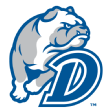 Drake Bulldogs
Drake Bulldogs
Why they can be a Cinderella:
“They’re tough, they’re smart, they’re old as hell, they’re good offensively and defensively. They have great, great, great point guard play from Roman Penn, and nobody talks about him. He’s their most important player.” — Missouri Valley Conference head coach
“The answer is Tucker DeVries. That’s it. He’s good. He has enough size, shooting, freedom and irrational confidence to go have a huge game in the tourney. The rest of their guys are solid. Nothing amazing, but they’re all good college players. They’re also super old.” — Coach of nonconference opponent
Why they won’t be Cinderella:
“I do think it’s fair to question how they will fare against a very athletic Miami team. That is not Drake’s strength at all. Drake was beaten twice by Missouri State in our league — who is talented and athletic.” — Missouri Valley head coach
 Iona Gaels
Iona Gaels
Why they can be Cinderella:
“[Daniss] Jenkins and [Walter] Clayton Jr. can score in bunches. The press and the switching man-to-man defense gets you deep into the shot clock.” — Metro Atlantic Athletic Conference head coach
“They can win a game because of the talent level of their guards. Plus, they’re led by a Hall of Fame coach.” — Coach of nonconference opponent
Why they won’t be Cinderella:
“They shoot a lot of midrange jumpers, and they can get cold from 3. You can attack them in transition.” — MAAC head coach
“They lack depth. And the style of play becomes a factor if they can’t consistently impose their will, impose their tempo and pressure. UConn is going to be too big, too deep.” — Coach of nonconference opponent
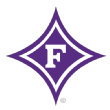 Furman Paladins
Furman Paladins
Why they can be Cinderella:
“Furman is extremely well-coached and has older, veteran players. They move the ball and share the ball as well as anyone, so their opponent really has to work on defense. They shoot the ball well and have great balance in the paint. Simply put, they are efficient, and if they build a lead, they’re a difficult team to come back on. If they get up on Virginia early, Virginia will have a difficult time with their pace.” — Coach of nonconference opponent
“They can win because they have two legit high-major players in [Jalen] Slawson and [Mike] Bothwell. Bothwell is someone who can absolutely take over a game, and then Slawson is a matchup problem for traditional bigs. Add in [JP] Pegues’ shooting and they present a lot of problems.” — Coach of nonconference opponent
Why they won’t be Cinderella:
“They aren’t very physical. Rebounding can be an issue. They can also run very cold on offense when they get out of whack. Bob Richey is a good coach, but for some reason, they go into droughts, and when you combine that with an average defense, it’s just tough at times.” — Coach of nonconference opponent
“Their weakness is their post defense and post depth. You can really hurt them inside and wear them down.” — Coach of nonconference opponent
NBA scouts’ watch list
There are no clear-cut must-see individual matchups in the first round, but the 8-9 game between Arkansas and Illinois in the West region (Thursday, 4:30 p.m. ET, TBS) features six of the top 26 NBA draft prospects in the NCAA tournament, according to ESPN’s Jonathan Givony.
Arkansas guards Anthony Black and Nick Smith Jr. are projected lottery picks, while Ricky Council IV and Illinois forwards Coleman Hawkins and Terrence Shannon Jr. are likely mid-second-rounders.
Black vs. Shannon intrigues one scout the most.
“The prominent question surrounding Black — beyond his shot — is how well does he do against similarly sized wings that can bring physicality?” he said. “How does the playmaking, ball control, ability to run a team and finishing at the basket translate against a guy like Shannon, who is a ready-made NBA defender? That also might be what defines who wins the game.”
Another head-to-head battle generating some buzz among scouts is NC State vs. Creighton — more specifically, Terquavion Smith vs. Trey Alexander.
Smith entered the season as arguably the best NBA draft prospect returning to college, and while he’s back to being a borderline first-rounder, it’s still a good test against Alexander, who has boosted his stock and finished the regular season on a high note.
“Terquavion Smith is probably going to go late in the first round, but if he gets hot and leads his team to the Elite Eight, it will be interesting to see how much his stock rises,” one scout said. “It’s a big tournament for Alexander. The buzz is there, and he can get into the mainstream conversation.”
“I’m a big Trey Alexander fan,” another scout added.
Creighton remains an interesting team for NBA scouts, who also want to see Baylor Scheierman continue to flash his playmaking ability and 3-point shooting, and Arthur Kaluma show some consistency.
Oral Roberts star guard Max Abmas going up against Duke should be one of the more entertaining matchups in the first round, but he has fallen down NBA draft boards since his incredible 2021 NCAA tournament run.
An under-the-radar matchup one scout mentioned was Arizona’s Azuolas Tubelis vs. Princeton’s Tosan Evbuomwan. Tubelis earned All-American attention this season for the Wildcats, while Evbuomwan won Ivy League player of the year honors last season for his all-around production.
“Can either shoot, and can they show their full skill sets against each other?” one scout said. “It’s not a sexy pick, but I don’t see a lot of crazy, NBA potential matchups.”
One more matchup multiple NBA executives mentioned as one they’re watching is Drake’s Tucker DeVries going up against Miami. DeVries, a 6-foot-7 wing ranked inside ESPN’s top 100 draft prospects, is one of the better shooters in the NCAA tournament — but he has only faced a few high-major opponents during his two-year college career.
“Tucker DeVries shoots the p— out of it, but with apologies to the Missouri Valley, he hasn’t been playing against a lot of high-end talent,” one scout said. “Miami is no defensive monster, but I’m looking forward to seeing him against Jordan Miller and a few other athletes.”
Credit: Source link